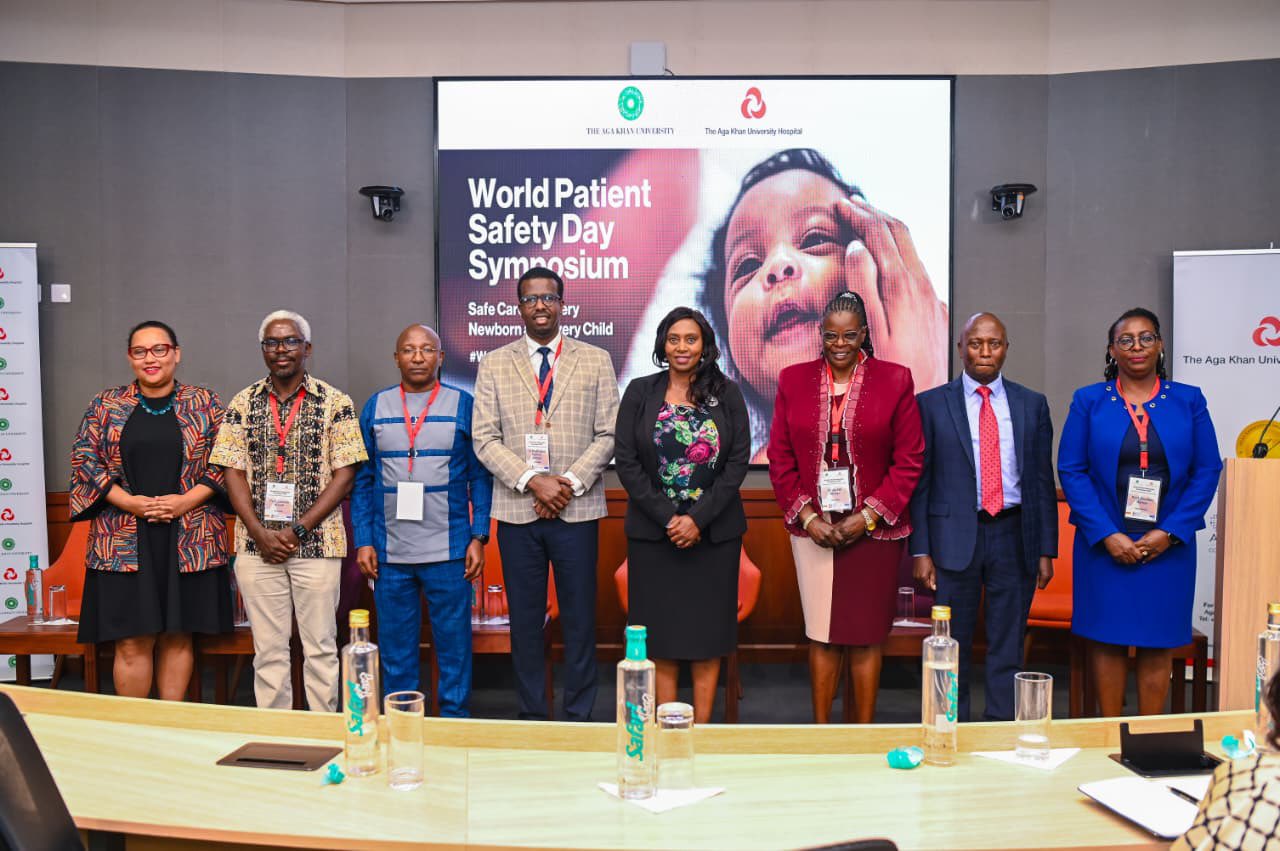Kenya’s Ministry of Health has unveiled two major initiatives aimed at strengthening patient safety and addressing mental health gaps, underscoring its commitment to advancing Universal Health Coverage (UHC).
During the World Patient Safety Day Symposium at the Aga Khan University Hospital, themed “Safe Care from the Start: Preventing Harm in Neonatal and Paediatric Patients”, Principal Secretary for Public Health and Professional Standards Mary Muthoni highlighted the government’s expanded patient safety systems.
She noted that strategies such as the Community Health Strategy, Primary Healthcare Fund, and the electronic Community Health Information System (eCHIS) are improving early detection, reducing preventable medical errors, and enhancing accountability across the sector.
Muthoni emphasized that patient safety must be integrated from childbirth through early childhood, warning that preventable causes like birth asphyxia, premature births, and infections remain key challenges.
“Patient safety is not a checklist but a shared value,” she said, urging stronger partnerships among health workers, institutions, and stakeholders to safeguard newborns and children.
In a separate development, the government launched the National Advisory Committee for the National Baseline Mental Health Survey, the first of its kind in the country.
Chaired by Director General for Health Dr. Patrick Amoth and represented at the launch by Dr. Bashir Issak, the committee will provide strategic guidance for the survey, which is expected to close a long-standing data gap on mental health in Kenya.
Dr. Issak said the survey responds to recommendations by the 2020 Mental Health Taskforce, which underscored the absence of reliable national statistics on prevalence, treatment gaps, and socio-economic factors.
Dr. Amoth added that while Kenya has a mental health policy, implementation has been limited by resources.
The upcoming survey will provide essential baseline data to guide policy reforms, funding priorities, and service delivery improvements.
Other health leaders present included Ms. Khatra Ali, Director of Health Services; Dr. Mercy Karanja, Head of Mental Health; and Prof. Lukoye Atwoli, Dean of the Aga Khan University Medical College, East Africa.
With these initiatives, the Ministry of Health seeks to demonstrate that protecting newborns, children, and addressing mental health challenges are central pillars in building a resilient health system.












